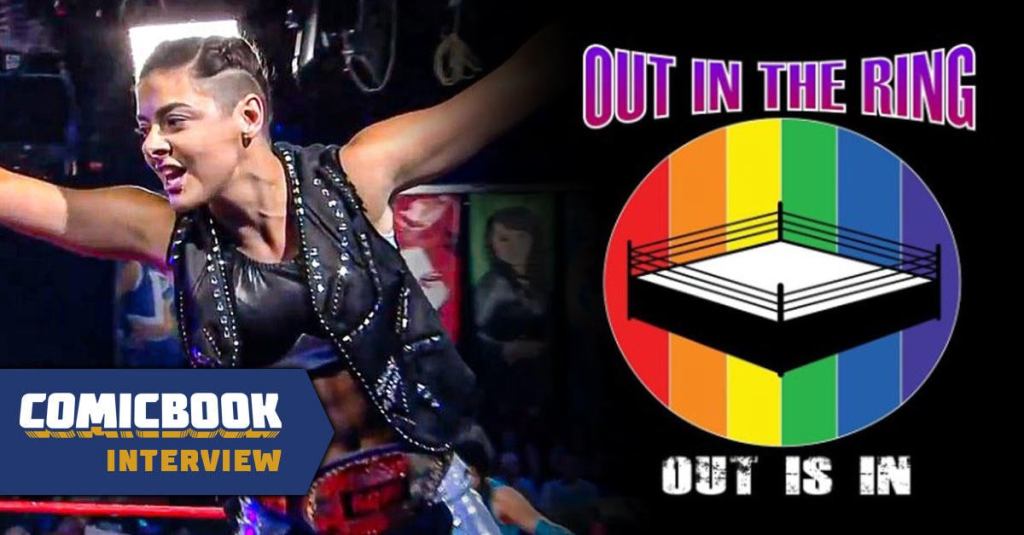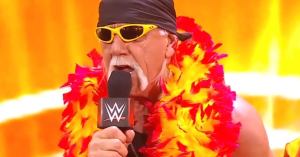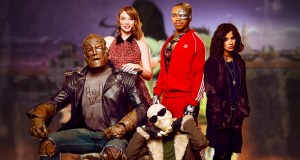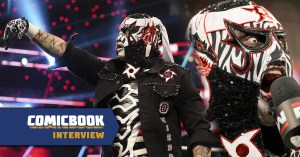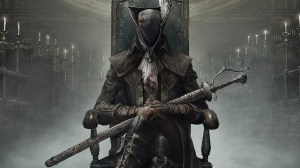Professional wrestling continues to be one of the most fundamentally intriguing worlds in the entertainment sphere, and that will likely never change. The blend of reality, athletics, brutality, theatricality, storytelling, and entertainment is a one-of-a-kind recipe that just isn’t duplicated anywhere else, and the stars at the center of it are no less compelling. Ry Levey’s award-winning documentary Out in the Ring recently debuted on Fuse Media, and the documentary takes a look at that one-of-a-kind industry from a different view, exploring and investigating the industry’s history of LGBTQIA+ representation, the changes in that representation, and how LGBTQIA+ stars were and are treated within the wrestling world now. ComicBook.com had a chance to speak with Levey about all of that and more, and Levey’s love of wrestling from childhood was a direct inspiration for the documentary.
Videos by ComicBook.com
“I mean, it’s a childhood thing. I grew up in Calgary, Alberta, Canada, on a diet of Saturday afternoon and Sunday afternoon Calgary Stampede Wrestling. And then that would lead me into AWA and then WWE in the ’80s. So I grew up on all of that. Closeted kid, was starting to understand who I was in the ’80s, as early as 10 and through high school, and when the time came to make a feature film, it made sense to explore something, one that I had a history and a passion for or an affection for, and two, that would uncover a hidden history of my own community as the LGBTQ+ community and try to find out the history behind this queer representation and who was there and who was in the closet and who’s out now,” Levey said.
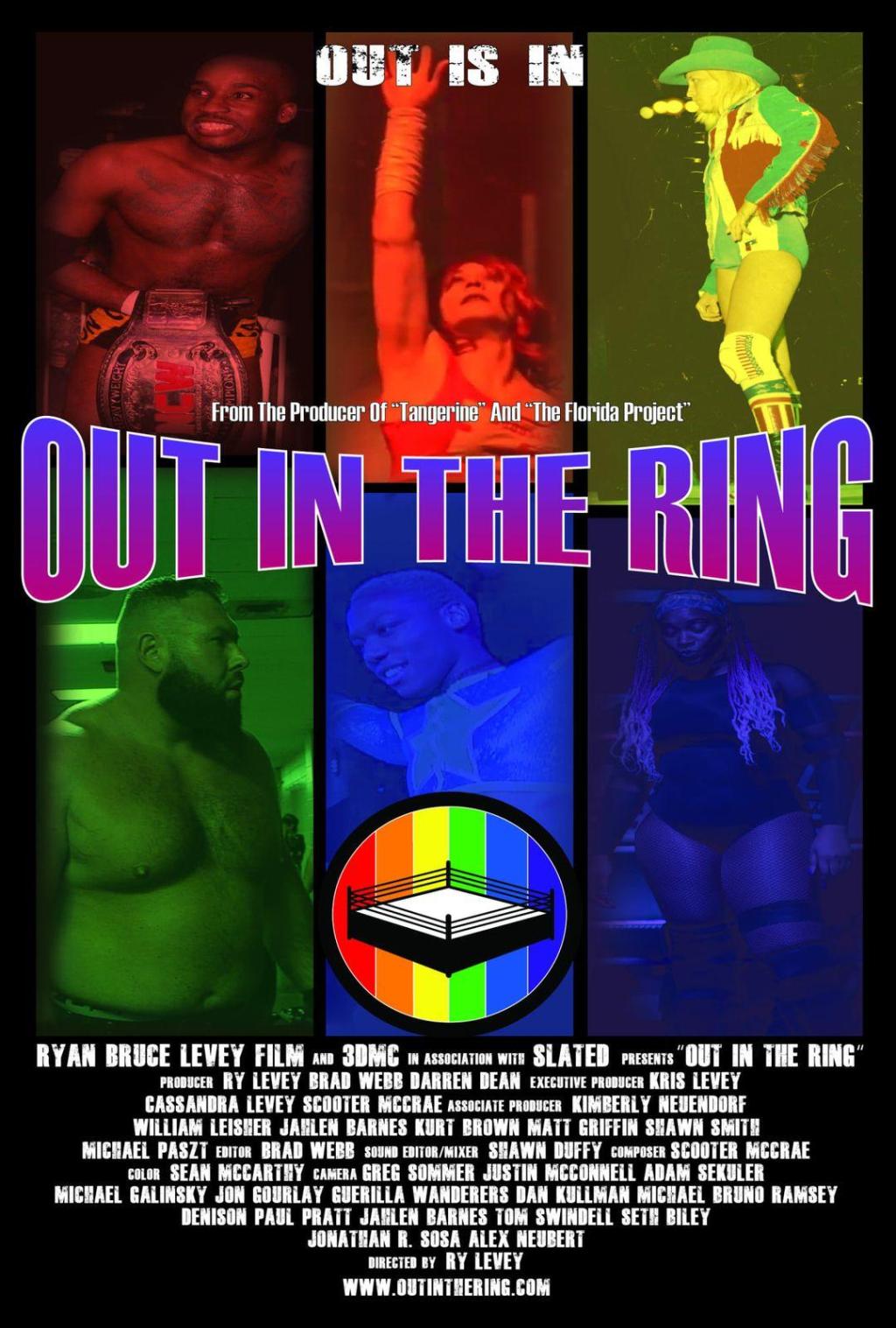
“I’m instantly drawn to spaces that we’ve been told we’re not welcome, and finding those hidden histories,” Levey said. “That’s ultimately the genesis that led me to start focusing on the film.”
Levey feels that many who hadn’t publically come out were ready to be open about it, but they were also waiting for someone to lead the way and a voice to come forward. Levey started from square one with limited information, and the territory-driven structure of wrestling in the past made tracking some things down a bit more challenging,
“In terms of my initial start to this, it wasn’t so much that people were afraid to talk about it. I think ready to talk about it is the way. It takes a lot of… And I know people hate the word, but it really does take a lot of courage to step up and be who you are in the face of adversity and hatred and discrimination,” Levey said. “And we live in politically charged times, more so than I think we’ve seen since… I don’t think we’ve seen this much hatred and intolerance since the 1980s when we were dealing with the HIV AIDS epidemic and people’s fear. Fear really is a driver in a lot of ways, but I think that for so many of these performers, they were waiting for somebody to lead the way. They were waiting for a voice to come forward. And so I had to dig, and the first places I went were obviously the rumored out wrestlers. We all knew that Pat Patterson was gay, but Pat wasn’t out. He’d never spoken the words publicly. He never referred to his partner, Louie Dondero as his partner. It was always his friend. It was always terms like that.”
“And because of the way wrestling was structured, TV was not national, it was territory-driven. It’s why wrestlers had careers and you can be a villain in Tennessee and the biggest babyface in Oregon. Just the way it was. It really wasn’t until the advent of McMahon buying up those territories, taking his father’s company that he’d purchased from him, and doing national expansion, that people were obviously privy to everything,” Levey said.
While it was challenging to track some leads down, things opened up quite a bit when Levey met Scott ‘Sgt. Dickson’ McEwan. “But within that, comes this difficulty of being able to find people who were willing to speak to it. I started with an indie wrestler who actually trained with Ken Patera in Minnesota, Scott McEwan, who wrestled as Sgt. Dickson out of the Toronto area. And I had seen him doing artwork involving his wrestling. He was very out and it was a great place to start because he was a lifelong wrestling fan who had knowledge of the territories, had trained under some people that were integral in the ’70s and ’80s and considered legends, and in an area where wrestling was a hotbed. I mean, we’re talking about the American Wrestling Association, the AWA,” Levey said.
“So, he had an insight that was a great way… and he was also an educator. He was a school teacher and a pro wrestler, an indie pro wrestler, and so he was able to bring a really great entry level to my storytelling,” Levey said. “It’s like, oh, okay. I have a guy that straddles legend to contemporary wrestler, who understands the nuances of that history. As I interviewed him in 2017, and I’ve been researching, then something started happening. Charlie Morgan, out of Pro-Wrestling: EVE, in the UK, had come out in the ring as the first woman to actively come out in the ring as a wrestler in the story.”
At this point, Levey started to see things shift, and all of a sudden there was a bevy of talent across the industry coming out and opening up publically. “Then we saw… We had Fred Rosser coming out and we had Mike Parrow coming out. And then coincidentally, in the film industry, Jumping Jim Brunzell’s son, Jim Brunzell, is a film programmer and an internationally renowned film festival programmer and he and I are friends through our film connection. He said, ‘Hey, do you know about this guy named Effy?’ And then it snowballed,” Levey said. “Austin Idol had a podcast and Pollo Del Mar went on that podcast to talk about how Austin Idol was an integral part of their coming out story and why wrestling was a part of their story in coming out. And then I met Sonny Kiss at a Greektown wrestling show in Toronto, and at the time they were in a relationship with Killian McMurphy and they were affectionate in the ring together, training in Los Angeles. It’s like, ‘Wow.’ So we started to see it.”
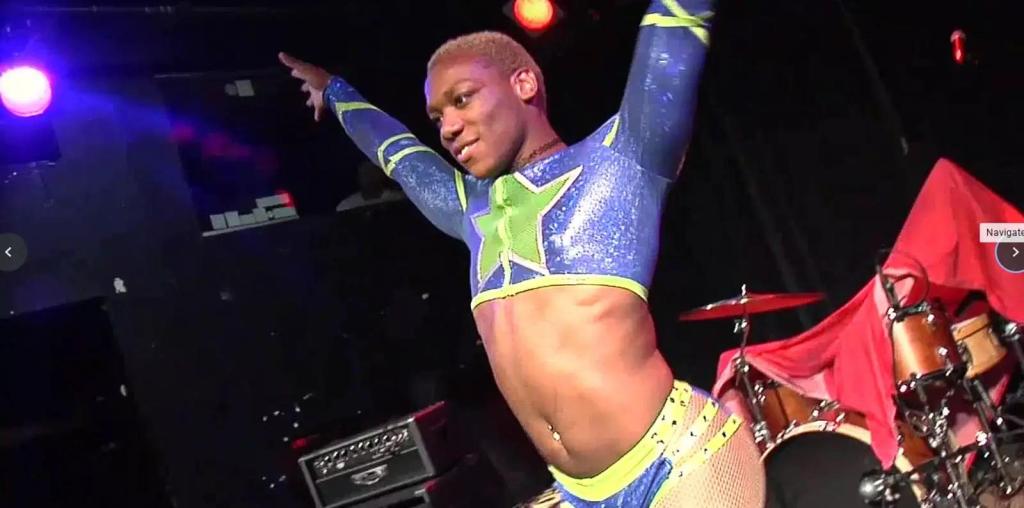
“And then I went to WrestleMania that year in New Orleans, that weekend and I went there in 2018 and then I ran into Melina Perez,” Levey said. “She says, ‘Oh, I’m working… I’m coming out of retirement and having a match at this gay wrestling show in New York State.’ And then Effy goes, ‘Oh, I’m on that show.’ Then I met Jamie Senegal who was sharing a table with Su Young and who has now since transitioned and living their truth even more so. I go to New York, then that’s where I meet Ashton Starr and AC Mack and Billy Dixon, and it’s like, “Oh my goodness.” And all of these amazing performers and allies on that performance. I think back, and that’s where I saw Max Caster when Shook Crew was on that show. Willow Nightingale worked that show. All of these people were of course allies at the time.”
By the time Out in the Ring was being edited in 2022, things had changed across the landscape, and when you think about it, it makes a lot of sense that the wave took place in wrestling sooner than in other sports leagues. “So cut to 2022, and we’re finishing the film, we’re editing, and we’ve got hundreds now. We’ve got promotions that are all… it is a global thing. It’s a global, global representation thing, and it’s not just gay men or lesbians or people who are bisexual. Non-binary, trans, trans femme, gender non-conforming, pansexual. People are living their truths in this space, and wrestling makes sense that way because as we talked about, it’s a weird form of entertainment. It’s drag, it’s bare knuckles brawling, it’s gymnastics, it’s acting, at it’s very best, it’s good. It’s hysterically funny theater. At its very worst, it’s the ultimate in camp and disaster, but no less fun. And it almost seems right that of all of the ‘sports leagues,’ that wrestling is the first one to really get to the table and be the most out,” Levey said.
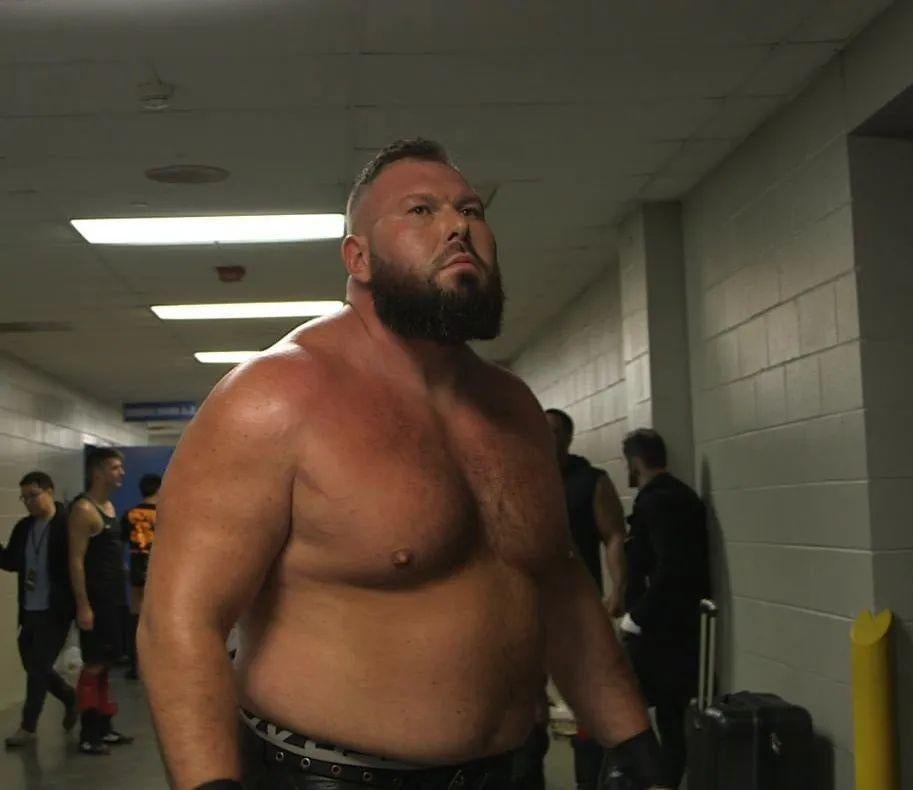
It’s also worth noting that the wave is taking place across all promotions and companies. Representation matters and always will, and it’s important that people not only see themselves but also see versions of themselves that they can take pride in.
“You have these spaces and you see yourself, but you are often looking sometimes within the things that you love most. You’re looking to see yourself represented, and when you don’t see yourself represented, you’ll cling to whatever they’ll give you. Which is why I think people in my film have always had an affinity towards even the problematic characters, the Adrian Streets, and for me it was Rip Rogers growing up in Calgary. I’ve always loved Rip Rogers, and I so love that he gets his flowers now in what a great performer he is. But he was one of the few potentially queer people that I had seen, or represented characters I’d seen,” Levey said.
“And then Goldust. I mean yes, there is bad and good in that representation. There’s bad and good in all this representation, but as Pollo says bluntly in the film, in her intro at that GCW Big Gay Brunch, ‘You are hungry, you will eat that s*** up and she ate the spoon.’ You really do because you’re clinging for that moment in time that, ‘Okay, I see something there. There’s something there. Something’s going to give.’ The truth is you’re waiting for it to break. You’re waiting for that one person to step forward and be counted,” Levey said.
Levey then brings up the first wrestler to ever nationally come out in the ring in Chris Kanyon, and Levey wishes Kanyon would have been here to see some of these landmark moments, but is also proud of his legacy and the respect people have for him.
“I’m so glad that… and I’m sad and yet so proud that Chris’s legacy in his death is one of respect and love for him now. He earned… He deserved it. I wish he were here to see this. I wish he could have been there to see Pat finally utter the words publicly in that legend’s house,” Levey said.
“I wish Pat could be here to see what’s happening. I wish that Chris could experience that. I wish Joanie, Chyna could live her truth in the way that she should have, because she was so badly treated and so abused and feminized and forced to downplay who she was as a bisexual woman. I’m glad she got to have a moment of coming out. I just wish it could have been more triumphant for all of them,” Levey said.
You can find more on all of these stories and even more stories in Out in the Ring, which is available on Fuse right now, and you can check it out right here.

